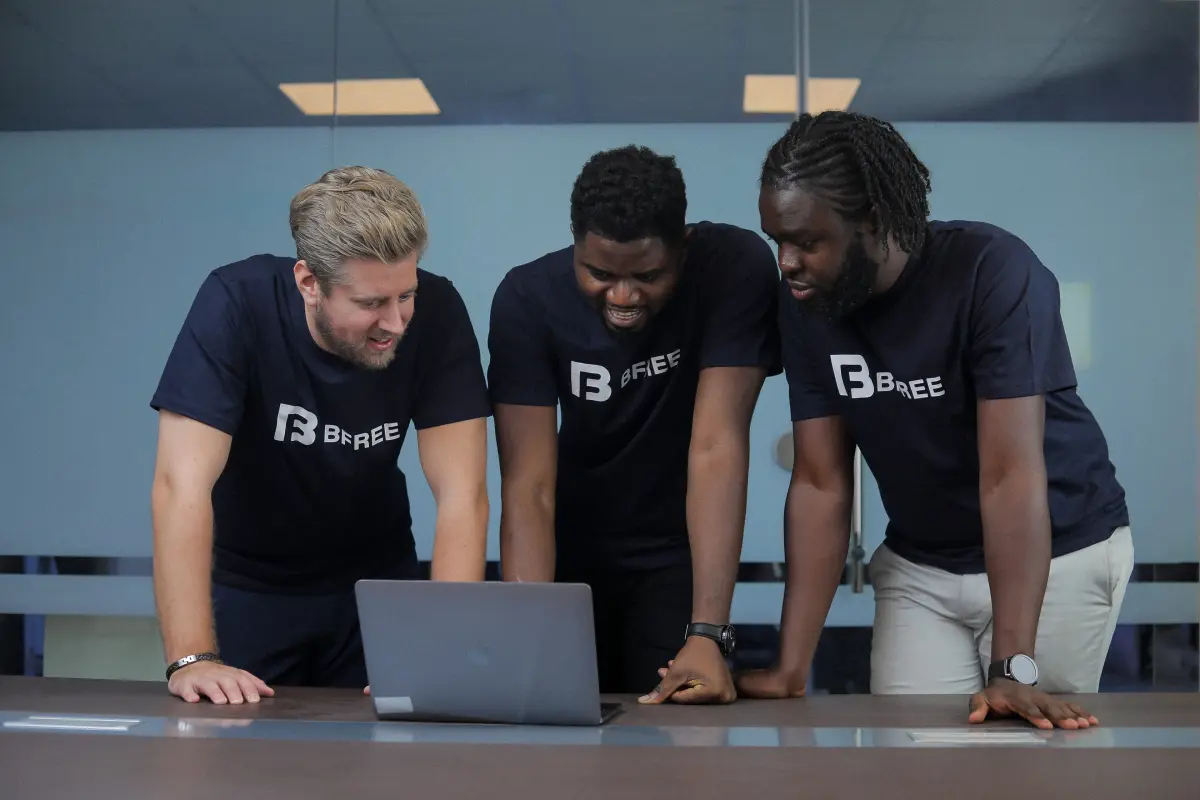Nigerian-owned Bfree, the top ethical credit manager platform in Africa, has announced its most recent funding round, raising $2.95 million.
An impressive group of distinguished investors, including Angaza Capital, GreenHouse Capital, Launch Africa, Modus Africa, Axian CVC, and angel investors, joined Capria Ventures—a leader in applied Generative AI in the Global South—in leading the round.
The benefit Bfree offers
Seeing firsthand the use and negative consequences of aggressive retrieval tactics, such as relentless calling and debt-shaming, by predatory online lenders inspired the founders of Bfree to automate and implement ethical debt recovery procedures.
A self-service platform that lets borrowers set up new payment plans and conversational AI tools (chatbots and callbots) as part of its collections-as-a-service offering was among the many scalable debt recovery methods introduced by the startup after its launch in 2020. These resources make sure that borrowers get compassionate after-sale services and that actions are taken using financial and behavioural data.
Read also: How to start a FinTech company
Its clientele has expanded over the years to encompass large banks in Nigeria, Kenya, and Ghana. With the $2.95 million in new funding it recently received in a round led by Capria Ventures, the company intends to keep scaling. With the addition of last year’s undisclosed $1.1 million bridge round, the total funding raised reached $6.5 million, with participation from Angaza Capital, GreenHouse Capital, Launch Africa, Modus Africa, Axian CVC, and several angel investors.
The company’s co-founders, Julian Flosbach (CEO), Chukwudi Enyi (COO), and Moses Nmor (CPO), noted that digital lenders were early adopters of Bfree’s products but that they now only work with a small number of these clients because their primary focus is on banks, which generate 70% of their revenue.
According to him, working with banks makes financial sense due to their large loan portfolios, in contrast to digital lenders. They were forced to raise prices or lose many smaller customers as a result of the immense pressure to increase their margins. Since its launch, the startup has worked with 45 clients, although it currently serves 14.
How the operation is handled
Despite the fact that 92% of Bfree’s customer interactions are automated, a small team is still on hand at a call centre in case customers call or if there is a need for follow-up calls. Additionally, it debuted Workflow, a software as a service (SaaS) for managing loan collections, aimed at businesses that either do not want to outsource or have in-house collection teams.
Collectors in Africa still rely largely on conventional methods, such as call centres, to pursue settlements; the startup is one of, if not the only, tech-enabled credit recovery companies operating in the continent. There are more than $400 million in loans that it has so far collected on, or 12.5%.
In addition, the startup intends to establish a secondary debt market wherein foreign investors, such as hedge funds seeking investment diversification, will be able to purchase non-performing loans (NLPs) issued by African banks. A debt buyer is someone who buys bank loans for a small fraction of their face value with the intention of collecting payments. Financial institutions sell NLPs to manage their loan portfolios, reduce risk, and free up capital.
He disclosed that they gather a great deal of information about borrowers, particularly those who have defaulted. They finally succeeded in creating an algorithm that can put a price on these assets. They can estimate the amount of a loan that has been overdue for 90 days and the likelihood of its repayment over the next 12 months. Then, in order to transfer the risk, they purchase these assets from banks and remove them from their balance sheets.
He went on to say that they also provide banks with an analytics solution that can shed light on the secondary debt market.
“The advent of generative AI provides a pathway for more efficient scaling, enabling the company to expand across the continent at a reduced cost,” commented Susana García-Robles, managing partner at Capria Ventures, a Global South specialist VC firm investing in applied generative AI. This comment was made in relation to the investment. When it comes to financial services, Bfree is in a prime position to make a significant impact by increasing accessibility and decreasing risk.
According to García-Robles, they anticipate credit management becoming more important and are certain that Bfree will take the lead in establishing a secondary market on the continent for troubled assets. Bfree has established strong collaborations with leading banks and fintechs, which validates its product’s efficacy and supports our conviction in its ability to revolutionise credit collection in Africa.
The startup is focusing on three important African markets while diversifying its offerings and slowing down its aggressive expansion plans, which were announced two years ago, when venture capital was abundant and “growth at all costs” was the mantra. This is predicated on knowing that different markets have different dynamics and that various markets call for different strategies and goods.




